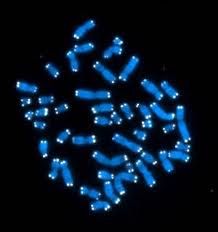The first blood test to measure more accurately how fast our DNA is ageing has been launched in the UK.
The TAT (Telomere Analysis Technology) test, measures the length of telomeres, the tiny caps at the top of our DNA. It’s already been scientifically proven that the shorter they become the closer we come to the end of life and/or likely to be suffering from life-threatening diseases or accelerated ageing.
Until now the only commercially available tests have measured the average length of telomeres – not how many are ageing or the percentage that are getting shorter. The results from the test are used to measure chronological age against biological age, as indicated by the damage to telomeres. The patient would then work with his doctor to correct damage with various lifestyle and diet changes, taking another test in a year’s to check changes.
Telomere damage can be stopped and even reversed by making lifestyle changes such as taking more exercise, a healthier diet and vitamins. There are also some substances which are known as ‘telomere activators’ and promote telomorase, the enzyme which helps lengthen them. These incude some anabolic steroids and TA65, a supplement made from a plant source.
In humans, as cells replicate, the telomere length decreases, as part of the natural process of ageing. But those suffering from diseases will have far shorter than average telomeres which eventually leads to faster or total cell death.
The company behind this new development is a new Spanish biotech, Life Length, which has been spun out research by the Spanish National Cancer Research Centre in Madrid and specific work by its Director Dr Maria Blasco.
The company has been partly funded by the Spanish government and US venture capital. So far $20 million has been invested over the last five years in developing and refining the technology. The test, at £650 is being made available through doctors in independent practices, who will guide a patient through the process, the results and the changes that should be made to lifestyle. Patients will also be asked, to anonymously contribute to research through a questionnaire to further enable medical knowledge into ageing diseases.
The Doctors Laboratory in London, is providing front end sample preparation for Life Length, who will process the blood samples in their laboratories in Spain.. Click here to mail the Doctors Laboratory about tests.
Patients undergo a simple blood test through their physician. The blood is then frozen the same day and sent to Life Length’s Madrid laboratory, where a powerful microscope is able to map the numbers of ‘critically’ short telomeres. The process is very complex, involving the ‘mapping’ of every single cell in the blood, which is why is takes a month to get the results.
At the London launch, Life Length CEO, Steve Matlin, predicted that while the test was expensive at this time, it could eventually become as readily available as cholesterol testing is today.
Matlin, a former US investment banker, has already had himself tested – to find happily that he has a biological age of 37 at the chronological age of 43.
Find out more about this new development on this video:


